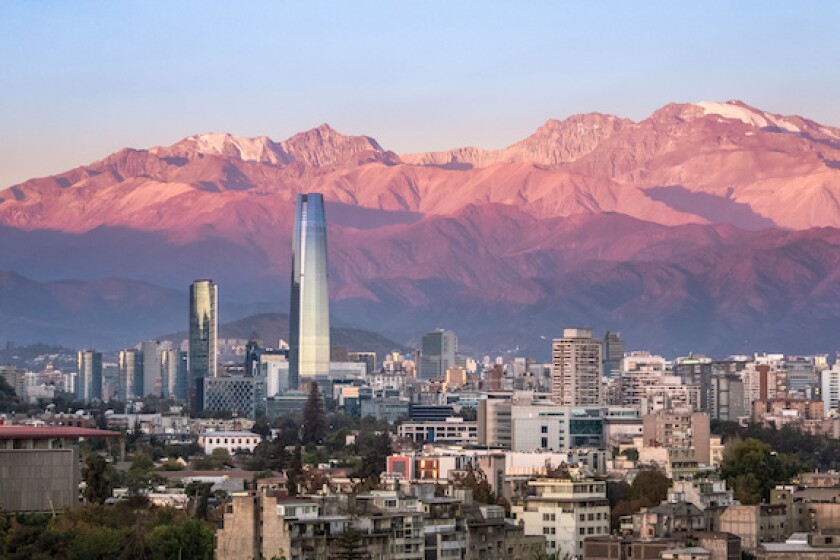RIO DE JANEIRO, BRAZIL – According to the Global Risk Report 2022, prepared by Marsh, a world leader in risk management and insurance brokerage, together with the World Economic Forum (WEF), the pandemic has accentuated and accelerated exposure to different types of risks worldwide, and Chile is no stranger to this reality.
According to the study, the country will be exposed to the following five risks by 2022: prolonged economic stagnation, erosion of social cohesion, systemic failures of social security systems, the collapse of the state, and extreme weather events.
In its 17th edition, with the contribution of more than 12,000 executives actively participating in the global economic forum, the report manages to reveal that the main threat to Chile will be prolonged economic stagnation.

Gerardo Herrera Perdomo, Managing Director of Marsh Advisory for Latam, states that despite the economic reactivation and the positive results of Chile in 2021, being the best in the region, the growth projections for the next three years are still far from those established in February 2020, before the pandemic.
“The pace of growth for the next few years projects slow recovery, conditioned especially by the high volatility of external and internal economic variables, such as the price of energy, metals, inflation, interest rates and inflation, as well as the political environments of the country and the region,” says Herrera.
Secondly, there is the “erosion of social cohesion”, a risk that Marsh says has been accentuated since the beginning of the crisis caused by Covid-19. This risk is perceived as a critical threat to the world, both in the immediate future and as one of the most damaging possible for the next decade.
However, Chile is not the only nation that presents that condition. There are 30 countries, such as Argentina, France, Germany, Mexico, and South Africa, among others of the G20, which also present an alert for this phenomenon where social crises are latent.
Herrera adds that social risks have “shown deep deficiencies and frustrations, which accelerated due to the restrictions that had to be used to face the pandemic, leaving a deep division and polarization of society”.
The other challenges that follow are the collapse of the state and the systematic failure of social security systems, accelerated by internal social conflicts, the erosion of institutions, or political and regulatory instability at the local, regional or global level.
Finally, extreme weather events are the risk that closes the list for the country. The study reports that the national territory may be exposed to increased damage to ecosystems through extreme weather events such as fires, floods, and droughts.
Gerardo Herrera mentions that Chile is at a critical moment in its performance in the climate change agenda, where accelerating energy transition projects, with public-private initiatives related to green hydrogen and financing the risk of exposure to extreme weather events and natural disasters, are the key to success.

